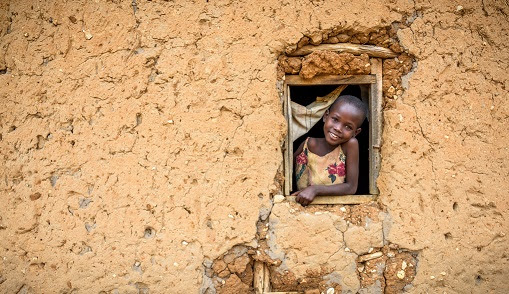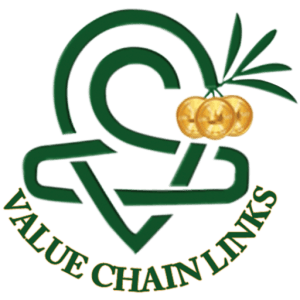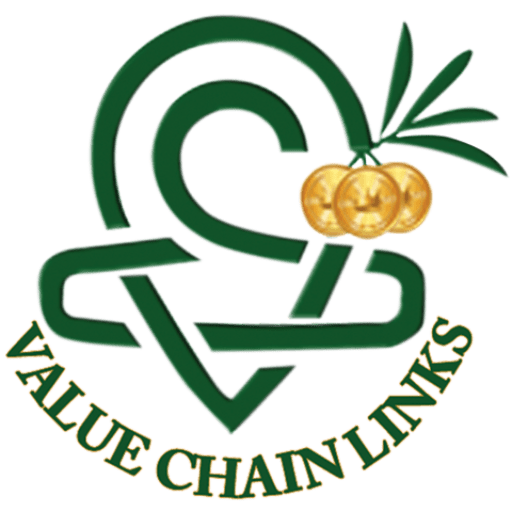WHAT MAKES THE DREAM VALLEY PLATFORM MORE THAN A [SIMPLE] PLATFORM?

by dr. Nimrod
HISTORICAL PERSPECTIVE
THE LUCKY ONES – Life basics are elementary; we want to feel loved secure, have enough food on our plate, and feel we are doing good for others. I bet it reflects well your ambitions as well as those of your family and your neighbors and friends as well, which makes you part of “The Lucky Ones.”
THE WORLD – Out of 7.9 billion people, 66% live on less than 10 $/day and 10% live on less than 1.9$/day. They are poor. Most of those are farmers.
Did you know over 95% of world farmers live in emerging economies?
DEATH – Every day, over 14,200 children under the age of 5 die from preventable causes such as poverty, hunger, and disease. Remember, POVERTY brings hunger and diseases!
PROSPERITY – The most promising and straightforward way to enable every child and adult to experience life in all its fullness is by helping billions whose livelihood depends on agriculture, i.e., farmers, to rapidly and significantly increase their income and prevent poverty.
Note that even when increasing the income of those under 1.9 $/day by 500%, they remain below 10 $/day!
But, how do you rapidly increase farmers’ income?
Dream Valley is doing precisely that; we aim to increase food production without chemical sprays (or at least 95% reduction), hence, preventing health and environmental hazards and damages.

DREAM VALLEY
If you’re not familiar, Dream Valley is doing to fresh produce trading what Amazon first and Ali Express later did to goods trading, Uber did to transportation, and Airbnb did to lodging and hospitality. It’s called democratization (available and accessible to many at equal terms).
But wait, why do we need democratization for fresh produce trading?
Isn’t everyone equal in the local and global markets?
CURRENT STATE
Farmers are not born equal. That is a sad fact.
If you are a farmer in a developed economy, i.e., advanced farmer, you have at your disposal the most advanced ever “Agricultural Package.”
Meaning you have access to affordable tailor-made technologies/know-how/protocols/services/R&D, Business models, and additional resources (not only financial),
This enables you to produce high yields of high quality and assures easy access to local and global premium markets. In short, the world is your oyster, i.e., you can achieve your dreams.
In complete contrast to the above, farmers in emerging economies use an old, outdated “Agricultural Package.”
Nothing of what they use is tailor-made to fit their unique situation, needs, and requirements. To sum, their chances of reaching global markets and competing with advanced farmers, as equal, are practically zero!
As a result, their income is as little as 1% to 5% of farmers in advanced economies. Again, we have to remember that over 95% of world farmers live in emerging economies.
BIG CHALLENGES POSE GREAT OPPORTUNITIES!
Farmers in emerging economies need a set of tools and solutions that will accompany them daily and year after year, from field to market and take them from poverty to prosperity.
Without a systemic approach to the challenges ahead, farmers in emerging economies will continue to suffer from poverty and hunger, which may cause ongoing social and political unrest.

 |
| The income of farmers in emerging economies is 1% to 5% of that of advanced farmers |
FIRST TAILOR-MADE SOLUTION FOR SMALLHOLDERS
Dream Valley (DV) is a system approach solution to farmers’ challenges and problems in emerging economies. Hence, it is the perfect solution for national-scale programs.
Smallholders’ income ($/Ha.) in emerging economies is 1% to 5% compared to farmers in advanced economies.
To help smallholders close up the professional and economic gap, DV developed TWO interconnected components that served and acted in the frame of DVP as one.
Dream Valley Platform (DVP) – the first platform to offer smallholders in emerging economies an end-to-end state-of-the-art Agricultural Package and a Business Model, both tailor-made for the local farmers’ unique situation, requirements, and needs.
Agricultural Package – includes novel technologies, know-how, protocols, etc., all to enable farmers to get the best professional results, i.e., improve quality and yield per hectare.
It is evident that, in its turn, higher yield and quality enable higher prices and therefore bring increased income.
Business Model – tailor-made for emerging economies farmers’, particularly for smallholders. This is to help them finance the rapid growth and operation expansion (export) they desperately need.

Thus, by helping improve the yield and quality and reaching premium markets, DV brings hope for a better future to two billion people – the farmers and their families.
More on the root causes of “The Agricultural Gap” is in a video series with the same name.
END-TO-END SUPPORT
As a farmer, I know that all farmers need continuous support, and those in emerging economies need it even more.
So we designed DVP to provide farmers of emerging economies with a tailor-made state-of-the-art Agricultural Package containing selected support tools, together with a powerful advanced Business Model to energize it.
These services are provided with professional field support or a wholly defined service package. For example, the Fruit Fly Certified Trade Zone (FFCTZ) protocol is a complete service package to ensure export quality results.
To provide the necessary support and solution, we start by analyzing the value chain in every new program, looking to identify critical challenges. DV provides a top-of-the-line set of specific, tailor-made tools and solutions based on this analysis.
This is how, regardless of the challenges, DV ensures that farmers will cross the value chain chasm and increase their income.

| MAIN TOPICS OF SUPPORTThe list below represents the scale and leading topics DVP provides tailor-made solutions.1) Coordination – of ALL the steps and actions.2) Quality – increase crop’s quality to Export Quality or an equivalent.3) Quantity – increase the yield per hectare.4) Control – of the export process and $ flow back to the farmer.5) Business model– to co-finance, based on sound business principles.6) Branding – creating differentiation and preference of Dream Valley farmers.7) Certification/regulation – to stand up to the top requirements.8) Logistics – from farm to market.9) Marketing – reaching premium markets to sell for a premium price.10) Personalization – connecting farmers to consumers The above practical solutions provided as elements of the DVP frame are holistic and inclusive, supporting farmers from the field to the supermarket shelf. Allow me to emphasize two critical advantages:1) DV is suitable for individual farmers and farmers’ organizations.2) DV is the first and by far the most suitable approach designed to address national agricultural challenges at a national level.NOTEIn the case of Greenfields (new orchards), the support begins as early as the farm establishment planning.This is most useful when the goal is to make a quick transition from local-oriented agriculture to export-oriented agro-industry and jump-start the economy.This would transform the agro-sector, including farmers, from poverty to prosperity based on solid business foundations. REALIZATION OF A VISIONThe current state of farmers in emerging economies demonstrates that without a tailor-made Agricultural Package and a complimentary business model, farmers will remain disconnected from premium local/global markets.Hence, they would remain hopelessly poor, consuming the state’s limited resources instead of contributing.Dream Valley, led by Dr. Nimrod Israely, is the realization of his vision, a result of over thirty years of work across agro-industry value chains’ parts, i.e., farmer, academy researcher, field support and advisor, entrepreneur, inventor, businessperson, and a market leader.This wouldn’t be possible without the field experience and field-proven results from thousands of small and large-scale fieldwork and careful study and analysis of markets behavior.Dream Valley is the only rational and practical solution available to pragmatic leaders who wish to create and leave a national economic success and prosperity legacy. DREAM VALLEY MISSION AND VISION“To improve farmers’ livelihood by increasing yields and quality production, free of bio and chemical hazards, grown in a safe, eco-friendly environment, to enable the consumers to enjoy better and healthier food and life.” THE DV OPERATIONAL BUSINESS MODELTo enable farmers easy and low-cost access to state-of-the-art Agriculture Package, Dream Valley works with different Government Agencies, Farmers associations, and individual farmers.The cooperation applies after the parties sign an agreement regulating their relationship.In return for getting a set of services, technologies, and protocols, farmers pay a certain amount (discount payment) in advance and commit to market their produce, at an agreed price, by DV only.DV provides the services/technologies/protocols as agreed, market the produce, and in return collects a commission from the significantly increased farmers’ income (minus the pre-paid part).Common case scenario:the farmer has a high yield per hectare of high export quality. Produce is marketed/exported by DV. In this case, the farmer and Dream Valley profit and share the high added value.Worst case scenario:the farmer is having an increase in yield per hectare, of higher quality, but not export quality. In this case, the farmer has a moderate income increase, but DV risks not returning its investment (as the farmer pays only a tiny % out of his increased income).Note that the business model motivates and brings benefits to both parties. Its clear mission and goal are to increase the value of production per hectare. As the value grows, the involved parties’ profit grows as well. PRIORITY (WHY MANGOS?) Dream Valley has limited resources and currently can’t start by providing its Package to all farmers. Meaning we had to prioritize.When calculating and comparing the maximum potential income per hectare of different crops, you find that the potential revenue from staple crops is hundreds of € per hectare, vegetables are thousands of € per hectare, and fruit trees are tens of thousands per hectare.Hence, in the coming years, we decided to focus on fruits, among those on Mangos and Avocados, high-value crops with the best combination of market potential volume and added value per kg. THE GO/NO-GO CHALLENGEAlthough Asia and Africa combined grow over 80% of global mangos (India alone grows 43% of global mangos), their share in the export of fresh mangos to premium markets is relatively low and often neglected.The reason is painfully simple to see and easy to understand; about 40% to 80% of mangos grown in Africa and Asia get infested by fruit flies, considered top biosecurity hazards and quarantine pests.Fruit flies also infest tens of other fruit and vegetable crops, including avocados.Inability to reach export quality control of fruit flies without chemical residues would mean we can’t initiate the DV program in those continents.In contrast, having the ability to control the fruit flies of Africa and Asia effectively would mean that DV can initiate its program in those continents.Furthermore, it means that as a supplier of an eco-friendly non-spray-only solution to control the fruit flies (with proven results), DV is THE ONLY fresh produce trading company that can develop the fruit industry in those continents. A GAME-CHANGERIn July 2017, something dramatic happened in the mango orchards of Karnataka, India; a small Israeli company, Biofeed (the winner of the Grand Challenges Israel competition, by the Israeli Innovation Authority), reduced mangos’ infestation by fruit flies from 50% – 80% down to less than 1%, and we did this without any sprays!In 2018, Biofeed developed a solution for the African fruit flies that attack mangos (and many other crops, including avocados), reducing infestation from its current state of 50% down to 0.1%, and even lower. Once again, all without any sprays.A new era has begun for the fruit industry of Africa, Asia, and the rest of the world.The farmers involved in the above activity increased their income by 50% to 1,700%! (video, Yacuobuo)At that moment, the Biofeed team knew the achievement was not delivered by chance, and it can repeat it in other places and other fruit flies.But, to turn the technological, scientific success of the Freedome into a solution that the masses can use, there is a need for a protocol that would ensure a constant quality level.To this end, Biofeed developed the Fruit Fly Certified Trade Zone (FFCTZ) protocol, which at its heart is the use of the Freedome technology. The optimization of the protocol was not easy and took over four years.Nearly 30 years of hard work have paid off. Biofeed’s, field test proven results, and the FFCTZ protocol enable farmers to grow mangos anytime, anywhere and harvest top-quality mangos for sea/air/land fright to premium export markets.But, now, the parameters for harvest are not solely based on fruit fly population or the frequency of rains, BUT rather on quality, the price paid by buyers/market, and market demands.Today, the FFCTZ, containing the Freedome technology, is the most critical service provided by DV as part of its novel Agricultural Package.The FFCTZ enables DV great freedom of choice to trade with mangos (in the future with other fruits too) from all over the world, knowing they are unaffected by fruit flies and had zero use of sprays. MARKET GOALSDream Valley’s fresh fruit trading platform aims to export from Africa to the EU 300K tons of fresh mangos by 2030. Reminder – today, the export is of ca. 70K tons.Exporting mangos from other geographies to other premium markets is optional and will be considered in due time. NATIONAL PROJECTSExport, particularly fresh mangos, is a national priority for many African and Asian countries. That explains why we get many inquiries from government officials regarding the nature of Dream Valley.If you are a government official or a decision-maker at a national level, this part is for you.You must have a well-designed strategic plan if you wish to succeed in taking millions of farmers from Traditional Agriculture to Business-oriented Agro-industry and leading them from Poverty to Prosperity.The Five Pillars strategic elements listed below presents an assumption that to create a transformation at the national level, we need to take care and advance, in parallel, each of those “pillars” –(1) Smallholders.This segment often constitutes 90% to 99% of the country’s farmers. The national economy will benefit the most from any change they would experience.(2) Professional (large scale) farmers.This segment is relatively small, typically not above 10%. These farmers act as if they were in an advanced economy. However, they suffer from not having a supportive professional environment, like it is in developed economies. Because of their sizeable operational scale can benefit more than the smallholders from the improved export quality and yield increase.(3) Dream Valley farms (Center of Excellence / Greenfield Farms).To take the national agro-industry fast into the future, there is a need to establish several state-of-the-art new farms. Those farms would also serve other goals, including a center of excellence (COE) for demonstrations, training farmers and students, a research center for universities, etc.(4) R&D.A prosperous agro-industry must be supported by a strong R&D. Hence; Dream Valley would act to connect researchers from advanced economies with local institutes to accelerate local research and development efforts.(5) Marketing and branding.A way of creating added value is through differentiation. This is an excellent opportunity to rebrand the country through the quality of its fresh produce. ACTIONI invite you to become a partner in our journey toward a more equal and sustainable world. Join me in the journey of solving the Gaps of World population growth, Environment Poverty & Global Hunger. |
| TAKEAWAYS» YOU CAN’T change the past, but the future is yours to create, and you can start TODAY with me.» THE “MEDICINE” that emerging economies need for a better future is different from that of advanced economies.» CLOSING THE AGRICULTURAL GAP requires more than grouping and injecting technologies and money into smallholders.» A HOLISTICSYSTEMIC APPROACH that uses an agricultural package and a dedicated business model are conditions for a sustainable change in the agricultural sector in emerging economies.» FARMERS in emerging economies require an Agricultural Package and Business Model to create the business environment for their success.» PLANNING IS EVERYTHING – In agriculture, success is determined even before the seed is sown and the seedling is planted. |
| If you enjoyed the article please share it with friends & colleagues. |

